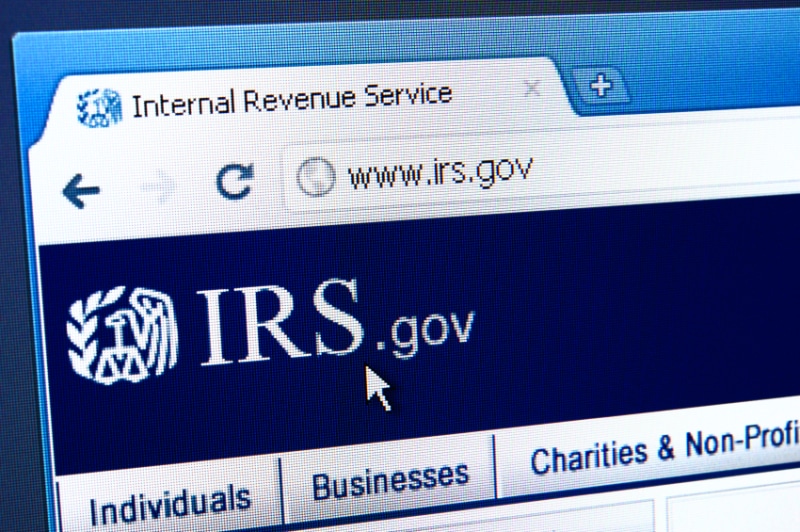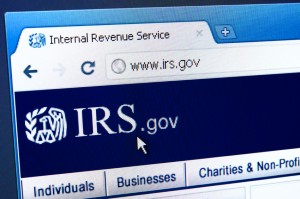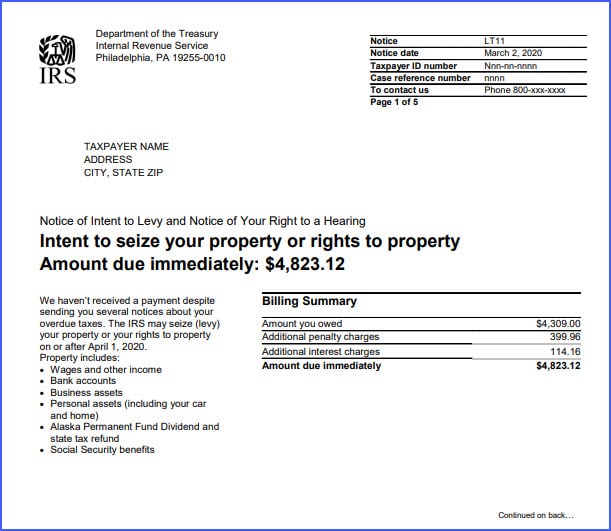End of Circular 230 Disclaimers & Move Towards Reasonableness
Summary
- Everyone is happy that Circular 230 disclaimers have been nixed in conjunction with the end of the Covered Opinion rules.
- The new Circular 230 rules covering written advice install a number of reasonableness inquiries, which utilize a new “reasonable practitioner” standard.
- The new principle based standards are “more straightforward, simpler, and can be applied to all written tax advice in a less burdensome manner [than the covered opinion rules].”
- However, since views on what is “reasonable” can vary significantly, it seems to be only a matter of time before practitioners’ views of reasonableness are challenged by the Service.
- The “reasonable practitioner” standard’s application will remain unclear until additional examples are provided by the Service or until we have published outcomes of disputes involving the new standard.
- It is unclear how the “recklessness” and “gross incompetence” standards in the sanction sections of Circular 230 will interact with the new “reasonableness” standards relating to written advice.
Elimination of Circular 230 Disclaimers
Since December 2004, many emails from law firms and accounting firms automatically included a few sentences stating that any “tax advice” in the email could not be relied upon for avoiding tax penalties. That was the case even when the sender was not a tax professional or even when the email had nothing to do with US taxes.
Tax professionals recognize that the disclaimer was utilized to ensure that the email was not considered a “covered opinion” under Circular 230, which is the body of federal regulations establishing the rules of practice before the IRS.[i] For many outside the tax community, the purpose of the disclaimer was a mystery.
Recently, U.S. Treasury Department (“Treasury”) released revisions to Circular 230 that, as of June 12, 2014, eliminates the “covered opinion” rules and therefore obviates the need for those annoying Circular 230 disclaimers.[ii] See Treasury Decision 9668 (the “June 2014 Revisions”). This is a relief for tax and non-tax professionals alike. [iii]
Installation of the Reasonableness Requirements
Although they are not garnering the same public attention as the demise of the Circular 230 disclaimer, the recent June 2014 Revisions made other important substantive changes to Circular 230.[iv] Among those changes was the adoption of a set of flexible principles—generally based upon a “reasonable practitioner” standard–that apply to all written advice concerning one or more “Federal tax matters.”[v] These new, more flexible principles are meant in part to replace the old “covered opinion” rules.
While the move from the complex covered opinion rules is generally considered by commentators to a good move, the move to a vague “reasonable practitioner” standard may cause a new set of headaches for tax practitioners.[vi]
The June 2014 Revisions installs a set a series of reasonableness requirements covering all “written advice”, including the range of tax advice that was formerly covered by the Covered Opinion rules. The preamble to the June 2014 revisions notes that the move to the new standards was to “strike an appropriate balance between allowing flexibility in providing written advice, while at the same time maintaining standards that require individuals to act ethically and competently.”
Specifically Section 10.37(a)(2) states:
(2) The practitioner must:
(i) Base the written advice on reasonable factual and legal assumptions (including assumptions as to future events);
(ii) Reasonably consider all relevant facts and circumstances that the practitioner knows or reasonably should know;
(iii) Use reasonable efforts to identify and ascertain the facts relevant to written advice on each Federal tax matter;
(v) Relate applicable law and authorities to facts; and
(vi) Not, in evaluating a Federal tax matter, take into account the possibility that a tax return will not be audited or that a matter will not be raised on audit.
In evaluating whether a practitioner has met these standards, the Commissioner will apply a “reasonable practitioner standard, considering all facts and circumstances, including, but not limited to, the scope of the engagement and the type and specificity of the advice sought by the client.”[vii]
What would a “reasonable practitioner” do?
Given that the underlying facts and circumstances of each piece of written advice will vary significantly, it would have been helpful to have some guideposts to understand what the Service will deem to be reasonable or unreasonable. Unfortunately, no specific guidance or examples have been given to elaborate on the “reasonable practitioner” standard. As any first year law student knows from torts, a “reasonableness” standard is relatively easy to articulate in principle, but it can be difficult to define or apply in practice.
What constitute federal tax matters?
Although the Covered Opinion rules only touched upon “Federal tax issues”, the revised written advice rules applies to all “Federal tax matters.”[viii] This definition “reflects the broad nature of advice rendered by Federal tax practitioners in today’s practice environment.” Any traditional federal tax advice is almost certainly covered by the definition of Federal tax matter. However, given the expansiveness of the definition,written advice from non-tax practitioners may also be caught up in the broad definition of “Federal tax matters” given that, in additional to internal revenue laws and laws effecting a person’s liability to pay tax, it also covers “any other law or regulation administered by the IRS.” A complete discussion of its reach is beyond the scope of this post.
What constitutes written advice?
According to the preamble to the June 2014 Revisions, commentators had generally agreed that no “detailed definition” of written advice was necessary. In response to requests from commentators, the June 2014 Revisions has specifically indicated that government submissions (e.g., providing comments on proposed regulations to Treasury or IRS on client’s behalf) and continuing education programs are not considered written advice for purposes of Circular 230.
A continuing education program is excluded so long as it is “provided to audience solely for the purpose of enhancing practitioners’ professional knowledge on Federal tax matters, such as presentations at tax professional organizations.” Nevertheless, IRS still expects that presenters of continuing educational programs to follow generally applicable diligence and competence standards under §§ 10.32 and 10.35.
As is to be expected, presentations marketing or promoting transactions are not treated as continuing education programs that are excluded from the definition of written advice in the June 2014 Revisions. In fact, the Service will apply a “heightened standard of review” to determine whether a practitioner has satisfied the written advice standards when “the practitioner knows or has reason to know that the written advice will be used in promoting, marketing, or recommending an investment plan or arrangement a significant purpose of which is the avoidance or evasion of any tax imposed by the Code.”
The express removal of government submissions and continuing educational programs is comforting. However, the interaction of the new “reasonable practitioner” standard along with the broad definition of written advice and Federal tax matters leaves a number of unanswered practical questions, including, but not limited to, the following:
- How much factual detail should be provided in a written opinion or memo? How much legal analysis must be done?
- How lengthy and exhaustive does an email response to a client have to be?
- When can publishing an article or blogging on a federal tax topic run afoul of the new “reasonable practitioner” standard?
- Can a discussion on a tax forum or listserv for tax professionals ever be considered “unreasonable” under the new standards?
Interaction of “reasonable practitioner” standard and “reckless or gross incompetence” for sanctions
Apart from the new questions raised by the basic application of the “reasonable practitioner” standard, it will be interesting to see how the new “reasonable practitioner” standard interacts with Circular 230’s sanctioning provisions.
Section 10.50 sets out the authority for sanctions and the elements triggering sanctions under Circular 230. Specifically, section 10.50 states that:
“the Secretary of the Treasury, or delegate, after notice and an opportunity for a proceeding, may censure, suspend, or disbar any practitioner from practice before the Internal Revenue Service if the practitioner…fails to comply with any regulation in this part (under the prohibited conduct standards of §10.52).”
And, section 10.52 states:
“(a) A practitioner may be sanctioned under §10.50 if the practitioner…(2) Recklessly or through gross incompetence (within the meaning of §10.51(a)(13)) violates §§10.34, 10.35, 10.36 or 10.37.”
Therefore, the provision providing for sanctions appears to impose an additional inquiry on top of the determination that the practitioner violated the new “reasonable practitioner” standard for written advice in section 10.37. That is, the practitioner must “recklessly or through gross incompetence” violate section 10.37.
As a result, it will be interesting to see how the Service applies these standards, since it is not clear how the reasonableness and recklessness/gross incompetence principles within the rules will interact.
Conclusion
Everyone is happy that the old Circular 230 disclaimers have been nixed. And, while the new reasonable practitioner standard is “more straightforward, simpler, and can be applied to all written tax advice in a less burdensome manner [than the covered opinion rules]”, the reasonable practitioner standard’s proper application will remain unclear until addition examples are provided by the Service or until we have published outcomes of disputes involving the new standard. Since views on what is “reasonable” can vary significantly, it seems to be only a matter of time before practitioners’ views of reasonableness are challenged by the Service.
Endnotes:
[i] Circular 230 generally refers to the US Treasury Department’s reprinting of 31 Code of Federal Regulations part 10, which are Treasury regulations governing practice before the IRS.
[ii] According to the Preamble to the 2014 Revisions, the revised Circular 230 does not prohibit the use of “an appropriate statement describing any reasonable and accurate limitations on advice rendered to the client.”
[iii] Interestingly, the IRS has indicated that it will be sending letters to practitioners to stop using Circular 230 disclaimers that state the disclaimer is required by [OPR].
[iv] The June 2014 Revisions covered five broad topics (i) Amendments To Rules Governing Written Advice; (ii) Procedures to Ensure Compliance [with Circular 230 generally] (iii) General Standard of Competence; (iv) Electronic Negotiation of Taxpayer Refunds [additional material covered] and (v) Expedited Suspension Procedures.
[v] Circular 230, Sec. 10.37(d).
[vi] For comments on the Proposed Regulations, which contain many of the same concepts in the Final Regulations, see NYSBA, AICPA, and ABA.
[vii] Circular 230, Sec 10.37(c)(1).
[viii] “[A] Federal tax matter is any matter concerning the application or interpretation of (1) a revenue provision as defined in section 6110(i)(1)(B) of the Internal Revenue Code (Code), (2) any provision of law impacting a person’s obligations under the internal revenue laws and regulations, including but not limited to the person’s liability to pay tax or obligation to file returns, or (3) any other law or regulation administered by the IRS.” Circular 230, Sec. 10.37(d).






